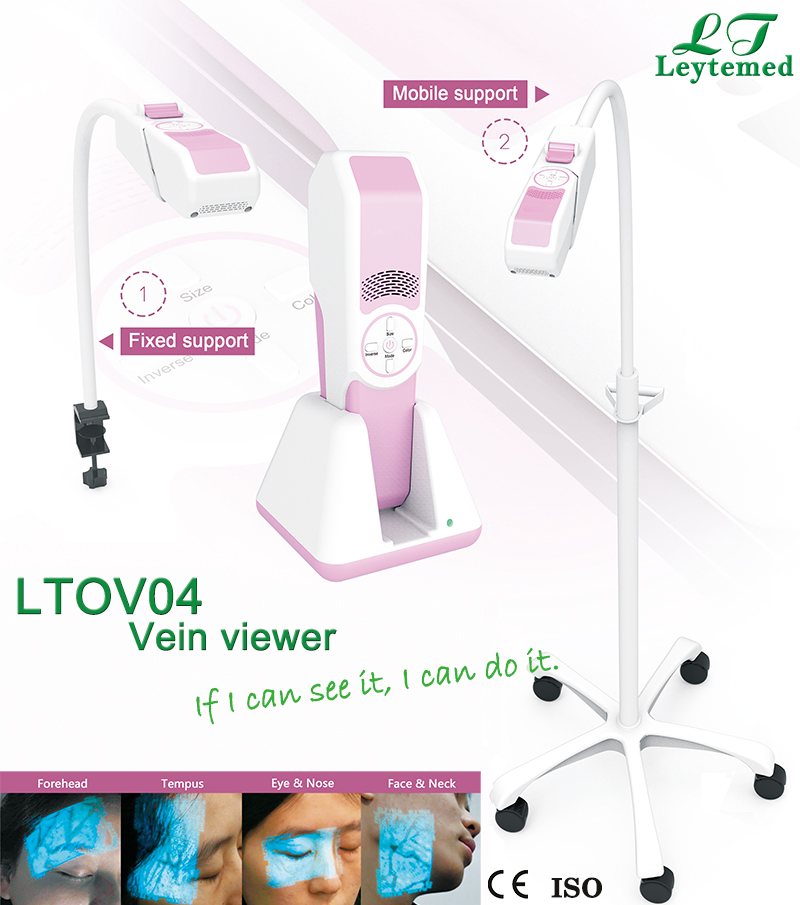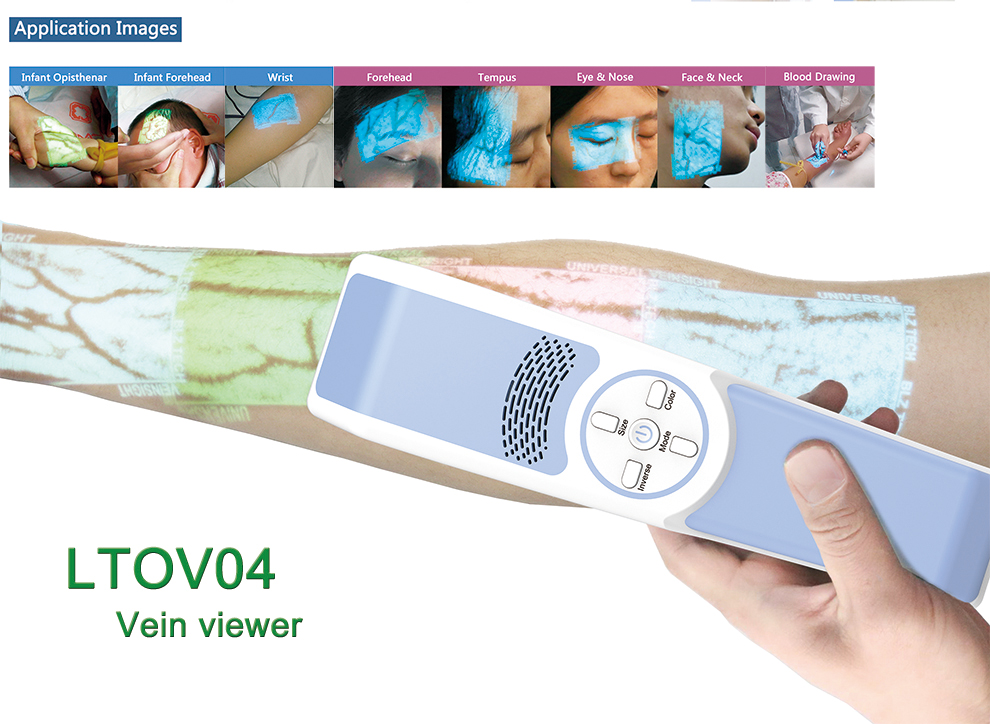LTOV04 Vein viewer --- If I can see it, I can do it.

Technology service to human health
Intravenous injection is very important to modern medicine.Nowadays, it is common for patients to be treated by intravenous injection, but sometimes the nurse has to try many times to find the location of the vein, multiple puncture makes the patient unbearable, it makes the patient and their parents very dissatisfied and lose confidence in the hospital.
Intravenous injection originated in transfusion concept.In 1900,Landsteiner found that when the body was mixed with different blood, it reacted.It lead to the identification of human ABO blood group system.This is a significant discovery.
With human progress in medical science,doctor began to treat patients with vascular puncture, but the key to the implementation of this medicaltechnology is to first try to find the body's blood vessels,in order to puncture the blood vessels for follow-up treatment.When the puncture object is a child blood vessels are less difficult to see, how quickly and accurately find the blood vessels on the patient is very important.
Early, clinical methods used to locate the blood vessels are mainly two kinds:
Visual method --- to find and locate the blood vessels with eyes.This method is only suitable for intravenous position than the superficial and prominent patients, for subcutaneous tissue vascular size, bending and bifurcation of the state, in fact, can not guarantee a glance.
Touch method --- to touch the feeling to find and locate the blood vessels.
This method is the medical staff with years of experience to touch the skin feeling, to distinguish between the blood vessels and the surrounding tissue of the qualitative difference, so as to determine the location and depth of the blood vessels.But this method also has limitations.
Science and technology service to human health
Today, the patient was amazed with vein viewer when the nurse was successful on her first attempt.By using the vein viewer, the nurse could see where she was sticking! It usually takes 3 or 4 attempts, and they got it on the 1st try!Most importantly, the patients absolutely love the technology, it legitimizes us as vein specialists.
One of the most skilled phlebotomists says she loves the Vein Viewer. Patients who are difficult to draw ask specifically for this phlebotomist and she often has just one spot that she is able to use to obtain the blood. She has used the Vein Viewer to locate additional sites on these patients. The Vein Viewer allows her and her patients to feel more confident in the outcome of the draw.
Children, obese and other special patients in the hospital blood or infusion, because the blood vessels difficult to find, the patient had to endure the pain caused by repeated puncture.
The Vein Viewer technology is allowing us to perform veinpuncture procedures on children with less sticks. Inserting IVs is less stressful for the child, parent, patient and the practitioner with the Vein Viewer.This technology is a tool we can use to help decrease that trauma while also helping us to gain IV access quickly and efficiently.
You also may be surprised to find that it reduces expenses of the hospital.
With more and more patients were done, you would notify the financial departmentthat just one of the machines paid for both in savings.
Not only does Vein Viewer decrease the time it takes to start an IV and increase success rate, it gives the patient and their parents a greater confidence in medical staff's abilities and willingness to make the situation as comfortable and easy as possible.
Vein viewer allows physicians better visibility of veins targeted for treatment, but also provides verification of full and complete treatment. Vein Viewer fulfills a basic surgical principle – If I can see it, I can do it.


